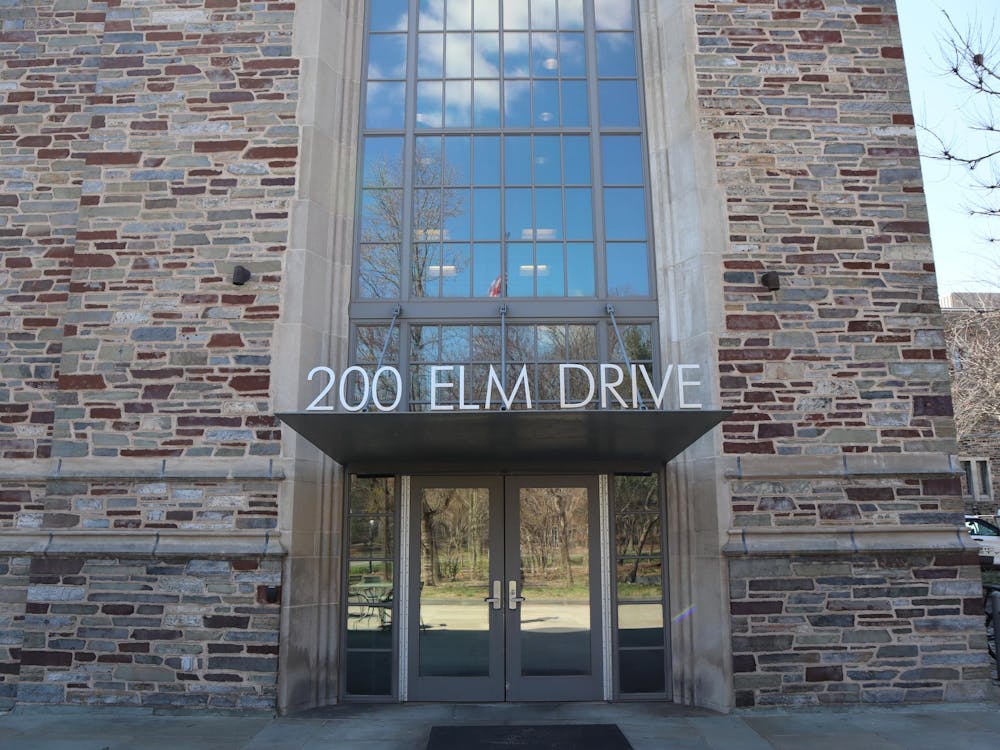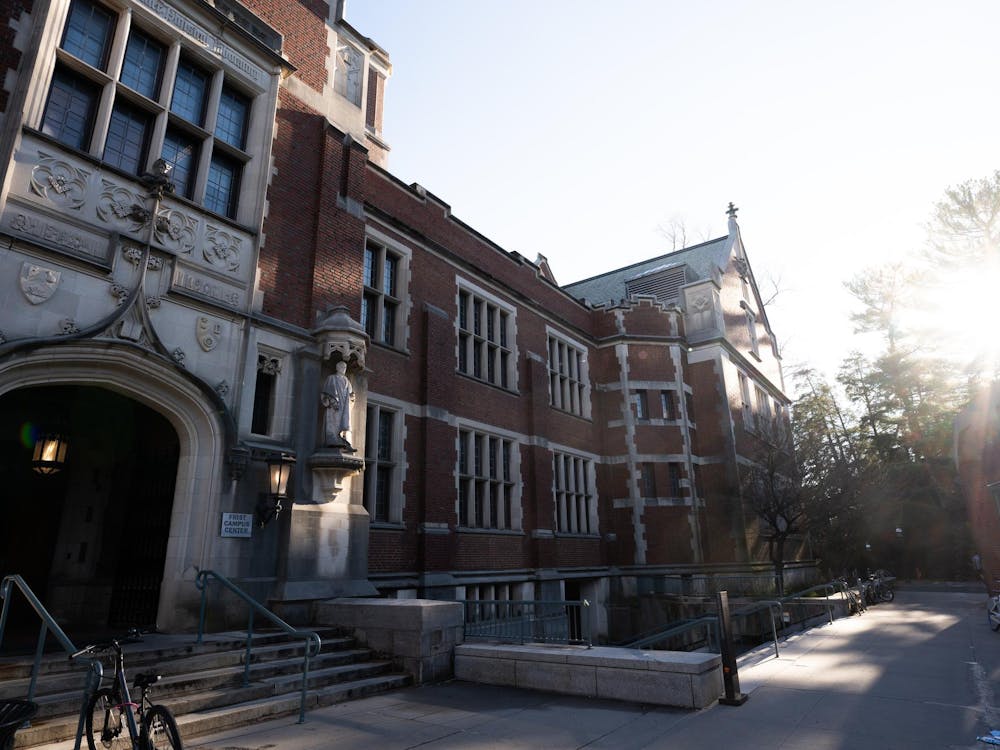The internal Faculty Advisory Committee on Policy is recommending updated procedures for addressing sexual misconduct cases, the University announcedlast Thursday.
The changes aim to bring the University into compliance with the Violence Against Women Act, reauthorized by Congress in March 2013, and Title IX, a law prohibiting sex-based discrimination in educational institutions that receive federal funds.
The recommendations include lowering the burden of proof from the “clear and persuasive” standard, which requires roughly 75 percent of the evidence to indicate guilt, to the “preponderance” standard, which relies on a more-likely-than-not principle.
All other Ivy League schools currently uses the “preponderance” standard, with Harvardhaving made the switch this summer.
Michele Minter, the vice provost for institutional equity and diversity and Title IX coordinator for the University, said that the committee developed the recommendations in response to July conversations between administrators and the Department of Education’s Office for Civil Rights.
The Office for Civil Rights has been investigating the University for alleged violations of Title IX since 2010, when New England School of Law adjunct professor Wendy Murphy filed a complaint against the University forallegedly mishandling reports of sexual assault.
“I think these recommendations are very important with regard to [the Office for Civil Rights] in order to make sure we’re fully compliant going forward, and that’s going to be very important in the resolution process,” University President Christopher Eisgruber ’83 said.
Although the Department of Education mandated the “preponderance” standard for investigating allegations of sexual harassment or violence in its April 2011 “Dear Colleague” letter to colleges, Eisgruber said that the letter required the “preponderance” standard in Title IX hearings without specifying whether all disciplinary proceedings were Title IX proceedings. The University chose to separate disciplinary hearings, which handled violations of student rules under the “clear and persuasive” standard, from Title IX grievance procedures, which handled discrimination based on sex under the “preponderance” standard.
Because of the split system, Minter said administrators believed that the “clear and persuasive” standard was compliant in the context of student disciplinary hearings until the Office for Civil Rights informed them otherwise in July.
“The Office for Civil Rights has made clear at this point that they regard all sexual misconduct hearings as governed by the Title IX standard of proof,” Eisgruber noted.
Murphy said that she disagreed with the administrators’ explanations, noting that the Office for Civil Rights agreed to issue the guidance of three years ago directly in response to her complaints against the University and Harvard Law School.
“The ‘Dear Colleague’ letter was about them and their problematic policies, and there is nothing complicated, confusing or open to interpretation about the ‘preponderance’ standard,” Murphy said.

Since the Office for Civil Rights bans students from judging sexual misconduct disciplinary hearings, the committee has suggested removing the current adjudicatory role of a subcommittee from the Faculty-Student Committee on Discipline, a body whose coordination lies with the Office of the Dean of Undergraduate Students.
Instead, a three-person panel drawn from administrators and outside investigators will evaluate sexual misconduct complaints. Minter said that the University is required to provide substantial training to the panel and is expected to include at least one person with significant legal training.
“Ideally, we would want there to be someone, in any case involving a student, who had significant student life experience and understood student experience in higher education,” Minter said. “And then we would want them to have deep expertise in Title IX and in all kinds of matters of sexual misconduct.”
Although ODUS will no longer be involved in evaluating sexual misconduct complaints, Minter said that Dean of Undergraduate Students Kathleen Deignan will continue working with the Graduate School’s Associate Dean for Academic Affairs Cole Crittenden GS ’05 to determine penalties for those found guilty.
Deignan deferred comment to Minter.
Minter added that, under federal regulations, the University must investigate student sexual violence complaints on campus rather than simply referring cases to criminal courts.
Another recommendation gives students access to lawyers at all meetings related to sexual misconduct disciplinary hearings. Current policy limits students to selecting advisors from among the University community.
In addition, for students, faculty and staff, the accuser will have the same right to appeal disciplinary outcomes as the accused. Previously, only those found guilty could appeal.
Murphy opposed giving victims the chance to appeal, arguing that the University process will postpone access to outside oversight agencies and accountability venues, such as courts.
“It’s now going to be a reason to delay a final decision in a victim’s case, and she won’t likely have authority to file an appeal with [the Office for Civil Rights] until the appeal is decided, and this in turn allows schools to run out the clock on complaints,” she explained. “This idea of running out the clock has enabled schools, for example, to make a decision on the eve of graduation in the hope that if they do rule against the victim and then she’s gone, they won’t be sued, they won’t get in trouble, there will be no federal investigation. And, 90 percent of the time, that’s exactly how it works.”
All faculty will vote on the recommendations at aSept. 15meeting. If the recommendations are approved, the Council of the Princeton University Community will consider revisions to “Rights, Rules, Responsibilities” two weeks later.
Minter noted that any revisions would only affect cases going forward.
Eisgruber is also creating a Committee on Sexual Misconduct made of students, faculty and administrators to ensure the continued review of University Title IX and sexual misconduct policies.
The committee will be chaired by Minter and English professor Deborah Nord. Minter said that she expects to appoint its members within the next month.
While the full scope of the committee has not yet been defined, Minter said that the group will help educate the University community about the changed policies, offer suggestions for revisions or refinements, and give advice on implementing a climate survey about sexual misconduct.
Correction: An earlier version of this article misstated the relationship between the Faculty-Student Committee on Discipline and the Office of the Dean of Undergraduate Students. The work of the Committee is coordinated by ODUS. The ‘Prince’ regrets the error.








